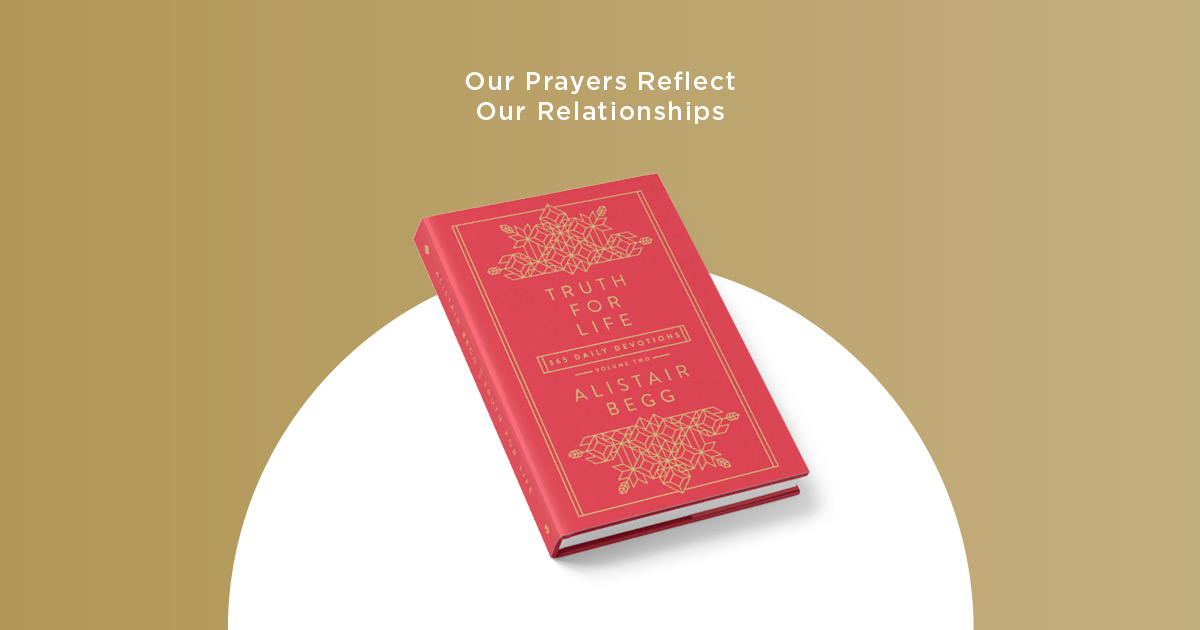
“I thank my God in all my remembrance of you, always in every prayer of mine for you all making my prayer with joy, because of your partnership in the gospel from the first day until now. And I am sure of this, that he who began a good work in you will bring it to completion at the day of Jesus Christ.” - Philippians 1:3-6
Our prayers tell us a great deal about ourselves and about our view of those around us.
Paul and the Philippian believers enjoyed a partnership grounded in the gospel. Theirs wasn’t a static fellowship based on a little bit of common belief. Rather, it was a deepening friendship that blossomed as they continued “striving side by side for the faith of the gospel” and to “work out” their salvation “with fear and trembling” (Philippians 1:27; 2:12).
The Philippians’ lives were marked by progression both in their relationship with Paul as their servant and their relationship with Christ as their Savior. Because of this partnership, Paul could be thankful, prayerful, and joyful.
If a church is to grow spiritually, the relationships among its people must be those of genuine thankfulness. Such gratefulness shouldn’t depend upon the perfection of others; we are all far from perfect. Indeed, our imperfections should fuel our prayers for each other! Even so, true, heartfelt thankfulness allows fruitful ministry to continue.
Our prayers tell us a great deal about ourselves and about our view of those around us.
Paul’s partnership was reflected in Paul’s prayers. As he prayed for the Philippian believers, his prayers were comprehensive: “... in every prayer of mine for you all.”
He didn’t just pray for those who were doing well or those who were in his inner circle; he prayed for everyone. We need to do the same! Indeed, if we pray for those who are often hardest to pray for, we will discover that they can actually become some of our best companions. We may even think they have changed, only to discover that we have changed, simply because we added prayerfulness to thankfulness.
Joyfulness comes as we partner in prayer with each other. Inevitably, some prayers involve pain. Our hearts ache as we get under the burden of our brothers and sisters who may be agonizing over their kids, their marriages, the loss of their jobs, their illnesses, or their bereavements. But at other times, instead of feeling like swimming against the tide, prayer can be like going with the waterfall as we rejoice together.
When together we bring our situations, needs, and triumphs before the throne of grace, that fellowship brings joy. That’s how Paul felt about the Philippian believers. He prayed sorrowful and hopeful prayers alike with joy because of their shared partnership.
We can learn from Paul. He knew that fellowship with other believers could create thankful, prayerful, and joyful people. How are your prayers for those with whom God has brought you into gospel partnership going to reflect Paul’s prayers for the gospel partners in his life?
One of the things my grandfather used to say as I bade him farewell was “I’ll be thinking away about you.” It always struck me as a strange thing to say. But by it he meant, “I care about how you are. I’m under the burden of what you’re doing. I’m interested in where you’re going.”
Paul used similar phraseology when he wrote words like “feel,” “heart,” “yearn,” and “affection” to the Philippian church. Phronein, which means “to think,” is translated in the ESV as “to feel” because this verb is expressive not simply of a mental focus but also of a sympathetic interest and genuine concern. Paul was telling the Philippians that though he was physically separated from them, they were very dear to him and remained in his thoughts and prayers. He was “thinking away” about them.
We share the same Father—and one of the fundamental ways in which we will express that love is to pray.
Paul—that man who had once been consumed by a hatred for Jesus’ followers—came to have this affection because Jesus gave it to him. He and his fellow believers were now bound together by God’s amazing love toward them. The standard and source of his affection was none other than the Lord Jesus Himself.
As Bishop Lightfoot wrote in Saint Paul’s Epistle to the Philippians, Paul’s “pulse beats with the pulse of Christ; his heart throbs with the heart of Christ.” Because the Philippian believers were such an important part of Paul’s life, his love for them moved him to prayer, for Paul understood that prayer is one of the key expressions of love. His love was not revealed in a cozy sentimentalism or in fine-sounding words.
Instead, he prayed for his friends, and he did so daily. When “God’s love has been poured into our hearts through the Holy Spirit” (Romans 5:5), we will find ourselves immediately drawn to others who love in the same way. It is the love of family life, for we share the same Father—and one of the fundamental ways in which we will express that love is to pray.
Do you love your children? Pray for them. Do you love your church? Pray for them. As Christ’s love expands your heart and flows through you, the affection you have for those you hold dear will move you to prayer. Be “thinking away” about those you love—and be “praying away” for them too!
This article was adapted from the January 28th and February 6th devotions in Truth for Life Volume 2 by Alistair Begg. Start each and every day in God’s word with this one-year devotional.